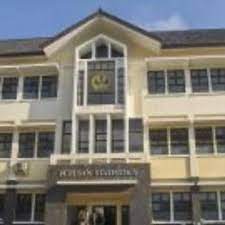SEJARAH
of the Statistics Study Program, Faculty of Mathematics and Natural Sciences (FMIPA) Universitas Padjadjaran (UNPAD) was originally referred to as the Department of Statistics. This department was opened at the beginning of the 1963/1964 academic year, following the existing Departments of Mathematics, Physics, Chemistry, Geology and Pharmacy. At the beginning of its formation the Department of Statistics was under the Faculty of Science and Natural Sciences (FIPPA). FIPPA-UNPAD assigned the establishment of the Department of Statistics to Drs. Sudjana, MA. (Now Prof. Dr. Sudjana, MA, M.Sc.) as the initiator.
Integrity
Established in 1963, based on the Unpad Rector's Decree No. 41/Kep/Unpad/63
dated October 3, 1963. The decree was later updated by SK DIKTI
No.217/DIKTI/Kep/96, dated July 11, 1996 regarding Study Programs in
Undergraduate Programs at the University of Padjadjaran. SK Operational Permit: 6639/D/T/KN/2011 dated 26 April 2011. Official Signing of SK Establishment of PS: Bambang Soehendro. Last/current Accreditation Rating (Score): A with SK BAN-PT Number: 3175/SK/BAN-PT/Akred/S/IX/2017 ( accreditation file )
LAB
Laboratorium Komputer
PROGRAM STUDI
Vision :
To
become a statistics study program that contributes to the development
of statistics and to become a statistical education center that is
closely integrated with the environment and recognized at the ASEAN
regional level in 2031.
Mission :
1.
Develop quality learning in the field of Statistics and keep abreast of
developments in science and technology to produce graduates who have
competence in the field of Statistics as well as the ability to
integrate with the environment and be competitive in the world of work.
2.
Develop research that focuses on development issues in Statistics with
applications covering local, national and international scopes.
3.
Carry out community service to support learning and progress of science
and technology for the academic community, government, industry and
society.
4. Develop education management by applying the principle of quality assurance.
5.
Establish strategic cooperative relationships with the community,
government, business and industry, educational institutions, and other
universities both domestically and abroad on an ongoing basis by
applying the principles of equality, partnership and mutual trust.

 MASUK PTN
MASUK PTN